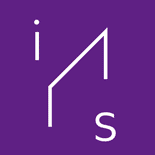English / 中文
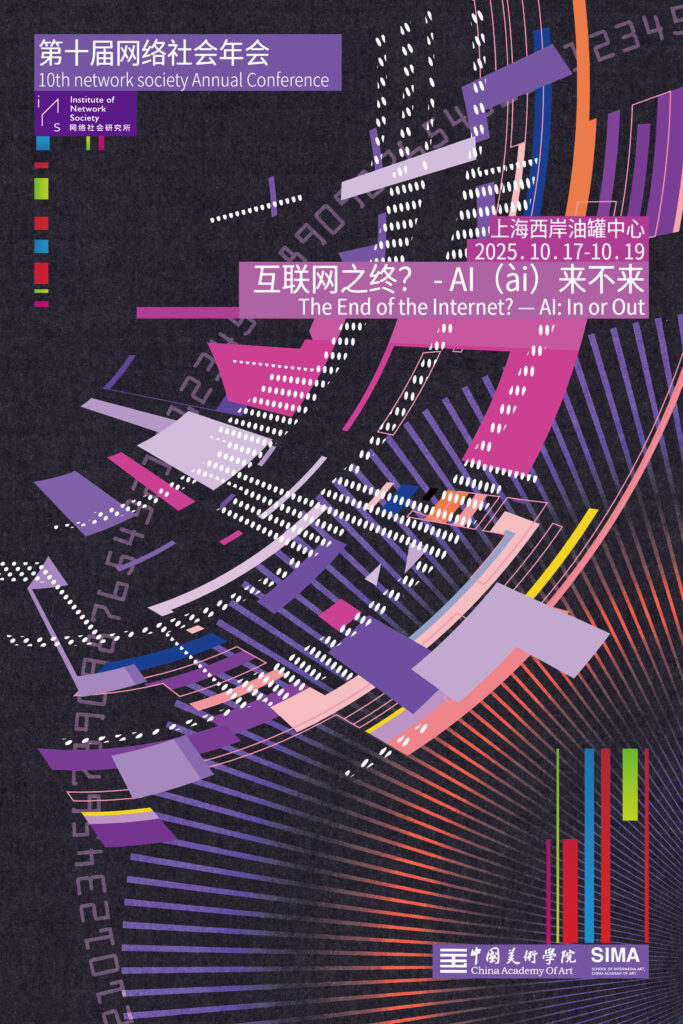
The 10th Annual Conference of Network Society
The End of the Internet? — AI: In or Out
HOST
Institute of Network Society (INS),
School of Intermedia Art (SIMA),
China Academy of Art (CAA)
CONVENER
HUANG Sunquan
Academic Committee
LI Kaisheng
MIN Han
HUANG Sunquan
CHEN Jieren
LIU Yisi
ZHOU Pengan
INTRODUCTION
Over the past decade, we have consistently pursued a “triple remix”of theory, technology, and action to interrogate the publicness of network society. The first conference, themed “The Power of Networking,” questioned the paradigm formation of techno-social ecology. The second, following Lefebvre’s itinerary, examined urban life and the everyday in the algorithmic age. The third, “Smart Urban Networks,”turned toward infrastructures and civic technologies. The fourth, “Netizens 21,”returned to media archaeology and platform critique. The fifth and sixth, held during the global pandemic, grounded discussions in practical experiments—distributed networks, encryption and cooperative token economies, metaverse rural reconstruction—opening up the linkage among tools, organization, and collaboration. The seventh contrasted P2P with the vocabulary of Web3, unfolding across seven global cities to clarify the contribution of distributed urban public cultures. The eighth reread the genealogy of counterculture and digital technology from the 1960s to the present. The ninth shifted the field site to the Global South, beginning in Chiang Mai to trace manufacturing, mobile connectivity, social media, and new terrains. This trajectory—from theoretical diagnosis, to protocol design, to geopolitical sites—points to the Institute’s enduring concern: How is the public preserved and reinvented amid technological renewal? How has the network transformed aesthetic production?
The 10th Conference, “The End of the Internet?”is not an apocalyptic proclamation, but an interrogation of systemic transition.When the public techniques of hyper-connectivity (citation, interoperability, transparency , and traceability) are replaced by natural-language prompting interfaces (large databases, system defaults, agentic decisions), are we crossing an invisible yet decisive threshold? “AI:In or Out”is not the doomer/ bloomer ideology of historical finality; it is the familiar advertising script of capitalist operation.
Today, social media platforms own “private data”(corporate assets made from personal data), making them effectively disconnected. Now the governance of AI is even more opaque: the entire history of humanity, the crystallization of humanistic and artistic intelligence, is subsumed without public authorization, without attribution or mechanisms of reciprocity, into a new form of “model capital”—something rentable, encapsulable, and arbitrageable. Moreover, who—and what kinds of data—are included within the language, corpora, and benchmarks of models? Who and what are excluded from computation, standards, and profit- sharing? This is the “protocol”question we have repeatedly posed for a decade—indeed the very key to the network-sociological concept of publicness.
In the early internet, public life was sustained by open protocols—HTTP, SMTP, RSS, ActivityPub—where fields, formats, and interoperability were collectively agreed upon. This was “inter-networking”:I could connect to you, and you to me; the rules were open, auditable, and replaceable. Today, the nodes have subtly shifted: we face model interfaces—API terms, system prompts, alignment strategies, content filtering, and evaluation constraints. These also function as “protocols,”but now as black-boxed, mutable, and unilaterally advanced by a handful of providers. Thus, the transformation unfolds: from open-protocol interoperability to model-interface inter-guidance.
The inter-guidance led by giant AI corporations is, in fact, the exploitation and hyper-valorization of “general intellect”(in Marx’s sense). Thus, when work becomes prompt, we may be facing the most dangerous turning point in human civilization: humanity’s collective reservoir of knowledge is filtered into “large language models”; language, the loom of social relations, is transformed into a teleprompter interface; craft, judgment, and aesthetic training are compressed into tokenized commands billed line by line. The danger lies not in machines becoming more intelligent, but in the corporate enclosure of general intellect as proprietary capital—concealing the broader social process of extraction–capital–labor, while gradient rents are captured through black-box evaluations and infrastructural monopolies. When work is prompt, if we do not rewrite the rules, we effectively hand over authorship, publicness, and the right to future distribution to system defaults:browsing and critical analysis are replaced by summoning; craftsmanship and coding are simplified to prompting; authorship is diluted into parameters.
As the Network Society Conference reaches its tenth anniversary, we face not only the compound power of capital-technology and the socio-technical construction of culture-technology, but also algorithmic sovereignty, corpus sovereignty, and infrastructural struggles among nation-states on a global scale. Perhaps no moment is closer to Marx’s Grundrisse, where he wrote: “The development of fixed capital indicates that general social knowledge has become a direct force of production.”And again:”Fixed capital is the most adequate form in which capital, as capital, can be represented.”Is this not artificial intelligence? Is AI not capitalism’s dream lover?
The tenth year is not a call to forget earlier questions in order to update solutions; rather, it is to find, within the ongoing battlefield, the ideals and practical possibilities lost in the late internet era—precisely what enables us to confront a seemingly new, yet more refined and labor-efficient form of exploitation.
In retrospect, the Institute of Network Society will showcase its decade of cumulative research projects (such as SparkLink, Archverse, cooperative models of computation, urban forums, young scholars forums, and hackathons). In addition to keynote lectures, this year’s conference will also exhibit research materials and video screenings from the Culture & Technology Trilogy, along with the Young Scholars Forum.
TIME
October 17–19, 2025 (UTC+8:00)
PLACE
UFO Terminal, Tank No.1, West Bund Tank Shanghai
(2398 Longteng Avenue, Xuhui District, Shanghai, China)
LIVE STREAMING
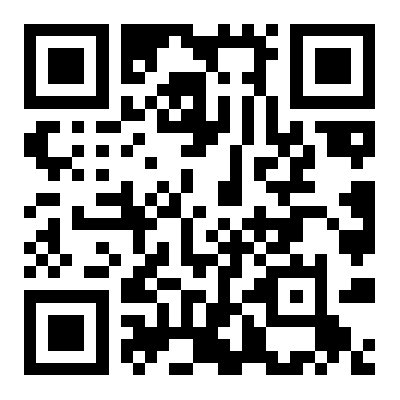
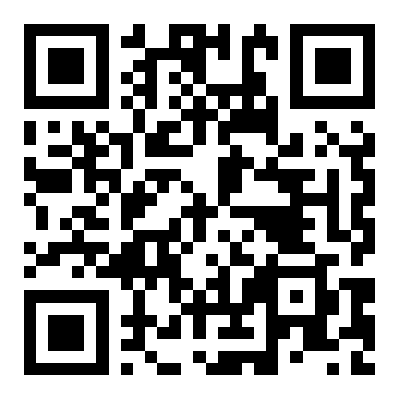
On-site Registration
Please click the link or scan the QR code to complete your registration.
Pre-registered participants will have priority access to simultaneous interpretation devices and reserved seating.
(A valid ID is required as a deposit when collecting interpretation equipment on site.)
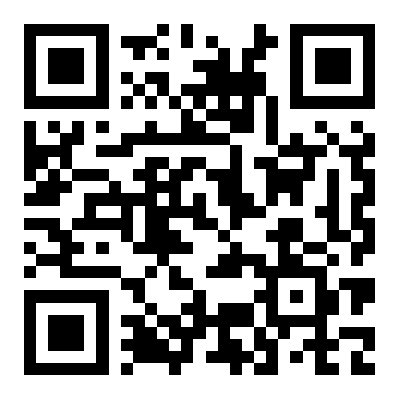
AGENDA
| October 17 2025 | ||
| Time(UTC+8) | Activities | |
| A.M. | Forum I: Young Scholars Session | |
| 9:00 | Venue Opens | |
| 9:20-9:30 | Welcoming Remarks by Liu Yisi | |
| 9:30-10:30 | Self-organized Panel|Affective Prompts Commenter: LIU Yisi Speakers: ZHU Yun|My “Lover”: The Chinese Scholarly Landscape of Otome Game Studies (2019–2025) CHEN Suyuan|Romancing with AI: The Commercial Construction, Textual Conditioning, and Intimacy Practices of AI Products—A Case Study of “Replika” ZHENG Yeying|Disembodied and Infinite Love: How General Conversational AI Reweaves the Network of Human Relationships YE Yunhe|From Embodied Encounters to Algorithmic Matching: Blued’s Technological Mediation and the Construction of Intimacy among Chinese Generation-Z Gay Men (Institute of Network Society, China Academy of Art) | |
| 10:30-11:10 | Self-organized Panel|Hijacked Futures and the (Im)possibility of Alternative Imagination: The Tech Right, Venture Capital, and the Specter of Anti-Democracy Commenter: JIANG Feiran Speakers: JIN Bowen|The Political Engineering of Venture Capital: How the Tech Right Drives the Corporate Statization of the American State YANG Qichen|Dark Enlightenment, Antichrist, and Techno-Messiah: How Does the American Tech Right Construct a Contemporary Theological Narrative? QIN Chuan|Arts and Humanities Labs under Technological Governance: A Genealogical Inquiry into the Critical Role of Art Schools (The Institute of Contemporary Art & Social Thoughts, China Academy of Art) | |
| 11:20-12:20 | Creative Talk moderator: ZHOU Peng’an Speaker: LUO Xiao Speech Title: When Generation Becomes Routine: Flux, Protocol, and Oblivion in the AI Era | |
| October 18 2025 | ||
| Time(UTC+8) | Activities | |
| A.M. | Keynote Forum – I | |
| 9:00-9:30 | Opening Remarks MIN Han, Vice Dean of School of Intermedia Art(SIMA), CAA Prof. HUANG Sunquan, Director of the Institute of Network Society and Conference Convener | |
| 9:30-10:30 | Panel 1|The Quiet Editor:Public Reason under Prompted Interfaces Speaker: Dylan Reibling Speech Title: Interrogating Infrastructure: Platforms, Predictions, and Prompts | |
| 10:30-10:45 | Break | |
| 10:45-11:45 | Panel 3|Atlas of AI Infrastructures: Cloud Heat, Ground Truth Speaker: Joana Moll Speech Title: The Interface Inside | |
| 11:45-12:45 | Panel 1|The Quiet Editor:Public Reason under Prompted Interfaces Speakers: Scott Moore & Bogna Konior Fireside Chat Title: Machine Decision is Not Final: Contesting the Quiet Editor | |
| P.M. | Keynote Forum -II | |
| 2:00-3:00 | Panel 4|When the work is Prompt Speaker: Nick Montfort Speech Title: Coding, Clicking, and Prompting to Make Art | |
| 3:00-4:00 | Panel 4|When the work is Prompt Speaker: Felix Staldert Speech Title: Digital culture, Generative AI, and Art | |
| 4:00-4:15 | Break | |
| 4:15-5:15 | Panel 2|Gradient Rent: The Political Economy of Prompts Speaker: Jack Stilgoe Speech Title: Bringing AI Down to Earth | |
| 6:30-8:30 | Film Screening and Discussion The End of the Internet by Dylan Reibling | |
| 8:30-10:00 | Live Coding Performance | |
| October 19 2025 | ||
| A.M. | Keynote Forum -III | |
| 9:30-10:30 | Panel 2|Gradient Rent: The Political Economy of Prompts Speaker: James Steinhoff Speech Title: Prompting and the political economy of (non)determinism | |
| 10:30-11:30 | Panel 3|Atlas of AI Infrastructures: Cloud Heat, Ground Truth Speaker: LU Miao Speech Title: Data center for the tropics: Heat management, Chinese tech, and energy politics in West Africa | |
| P.M. | Young Scholars Forum | |
| 1:00-2:30 | Young Scholars Forum|Panel 1 The Quiet Editor:Public Reason under Prompted Interfaces Commenter: HUANG Sunquan Speakers: DING Fan, YUAN Jinyu, ZHANG Jingni(College of Arts & Media, Tongji University)|The Quiet Editor and the Reconstruction of Public Rationality: A Critical Study of Implicit Power Mechanisms from the Perspective of Communicative Rationality HUANG Yuemin(East China Normal University), GUO Dumo(Royal College of Art)|Mirrors of Infinite Depth: Internal Circulation of LinguisticSymbols in the Post-Internet Era ZHAO Jiajing(Institute of Network Society, China Academy of Art)|Heresy Marginalia: The Struggle of Jailbreak Prompts LI Yangzi(Nankai University)|From Collective Resonance to Algorithmic Response: How Generative AI Reshapes Queer Narratives and the Politics of Visibility in Fandom Viola Leqi He, Max Loeffler(NYU Shanghai)|Violence of Alignment: How to Stop Worrying and Love Haunted Software LU Manman(Shandong University)|From “Super Puppets” to “Cyber Super Puppets”: Power Manipulation and Ethical Examination of Virtual Influencers in Intelligent Advertising(online) | |
| 2:30-3:30 | Young Scholars Forum|Panel 2 Gradient Rent: The Political Economy of Prompts Commenter: HUANG Sunquan, LIU Yisi Speakers: TONG Zhaoxiang(Institute of Network Society, China Academy of Art)|The Uneven Geographies of Artificial/Intelligence: The Labor Process of Data Annotators XU Ke(Institute of Network Society, China Academy of Art)|Mothers on the Digital Assembly Line: The Dilemmas of Motherhood for Female Data Annotation Workers in China’s Counties HUA Xizi(NYU Shanghai)|Parasitize Between Systems: Cross-Model Protocol Aesthetics As Method WANG Shaowei(Media and Communication, University of Oslo)|Prompt as Wager: Semantic Finance and the Fourth Value Form of Traffic in Vertical Drama Economies(online) | |
| 3:30-3:45 | Break | |
| 3:45-4:15 | Young Scholars Forum|Panel 3 Atlas of AI Infrastructures: Cloud Heat, Ground Truth Commenter: Speakers: PAN Ji MU Haojie(Fudan University)|“Green” versus “Panoramic”: Frictions and Politics of Urban Infrastructure ZHANG Xushan(Tsinghua University)|The Meshwork of Lines: Following the Fluid Trajectories of Data Centers | |
| 4:15-6:30 | Young Scholars Forum|Panel 4 When the work is Prompt Commenter: HUANG Sunquan, PAN Ji, LIU Yisi Speakers: JIANG Yizhu(Institute of Network Society, China Academy of Art)|machine imaginaire: A Critique of Aesthetic and Algorithmic Power in AI-Generated Art SUN Jinghе(School of Intermedia Art, China Academy of Art)|Interface, Feedback, and Decisional Violence: The Isomorphic Logic Between Video Games and Warfare YAN Hui(Independent researcher)|The algorithmic reconstruction of authorship: How AI Art reshapes creative identity and power REN Xuanqi, WU Yufeng(Tianjin Academy of Fine Arts)|From Poor Images to Prompts: Visual Genealogy and Authorship Reconstruction of Dreamcore Aesthetics in the AIGC Era LIN Qin(University of Nottingham Ningbo China)|Beyond the Algorithm: Cultural Expression of AI Divas from Production to Performance YAO Lijin(The Research Institute of Better China Initiative of CAA)|Judgment as Infrastructure in Human–AI Collaboration: The Case of Archival Exhibition Work SHI Yijia(Department of Transmedia Art, Xi’an Academy of Fine Arts)、WANG Zhizi、TANG Lan(Center for Art Education, Xi’an Jiaotong University)|Prompt as Method: Authorship, Presence, and Aura in AI-Generated Art JIN Qiuyu(Department of Arts Studies and Curatorial Practices, Graduate School of Global Arts, Tokyo University of the Arts)|Prompt Mechanisms and Audience Memory: The Transformation of Individual Experience in Contemporary Time(online) LIU Lei April(Global Arts and Culture, Rhode Island School of Design)|Accelerant: Designer’s Choice: Norman Teague – Jam Session and the Institutionalization of AI Art and Design(online) | |
| 19:30-21:00 | HUANG Sunquan: Screening and Discussion of Episode I: San Francisco: Personal Computer and Counterculture | |
SPEAKERS
(Arranged in order of the speeches)
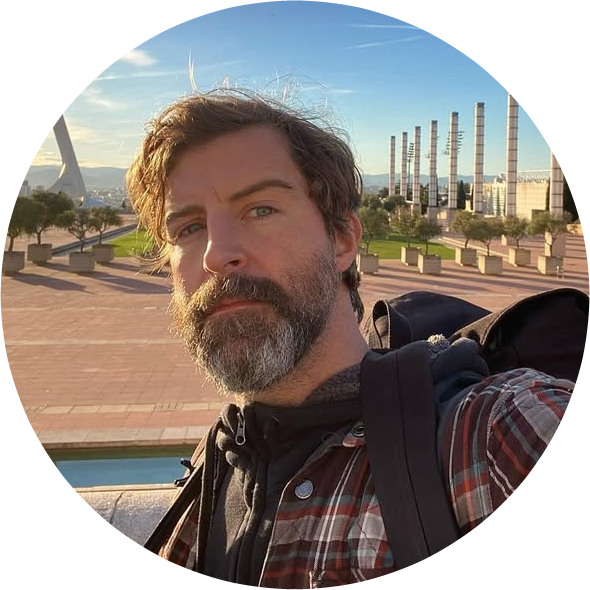
Dylan Reibling
Bio: Dylan Reibling is a Canadian filmmaker whose work explores the intersections of technology, politics, and culture. His debut feature documentary, The End of the Internet (2025), premiered in competition at CPH:DOX and has screened internationally at BAFICI, DokFest Munich, and beyond. The film examines the decentralization movement and the ways digital infrastructures shape social, political, and economic life. Reibling has previously worked with VICE on the acclaimed series Cyberwar and has presented work at festivals and institutions across North America and Europe. He is currently developing new projects on digital futures, technological frontiers, and political thought.
Speech topic: Interrogating Infrastructure: Platforms, Predictions, and Prompts
Abstract: What do infrastructures make possible—and what do they foreclose? This keynote examines how infrastructures—whether network protocols, platforms, or predictive algorithms—shape political, social, and cultural life. Drawing on encounters with technologists, activists, and communities during the making of the feature documentary The End of the Internet (2025), director Dylan Reibling traces the trajectory of distributed systems from their Cold War origins to the present dominance of platforms, highlighting the tensions between emancipatory ideals and commercial realities.
Early visions of decentralized networks promised resilience and non-hierarchical communication, ideals that resonated with countercultural movements of the 1970s. Yet the commercialization of the World Wide Web re-centralized control, naturalizing platforms as the primary mediators of digital experience. This infrastructural consolidation has produced new forms of constraint through algorithmic filtering, surveillance, and monetization.
Artificial intelligence represents a further transformation: where earlier textual infrastructures emphasized provenance, processing, and proscription, contemporary systems rely on prompts and prediction. Large Language Models do not reason but generate probabilistic continuations of past data, raising questions about knowledge, imagination, and the limits of scale.
The keynote argues that interrogating infrastructure means uncovering the affordances built into technical systems—because these affordances shape the world. To accept the seamless experiences offered by technology without scrutiny risks abandoning institutions and values that require care, debate, and collective commitment. Infrastructure, therefore, must be critically examined not only as a technical substrate but as a determinant of the futures we are able to imagine and build.

Joana Moll
Bio: She is a Barcelona/Berlin-based artist and researcher. Her work critically examines how techno-capitalist narratives shape the “alphabetization” of machines, humans, and ecosystems, focusing on data materiality, surveillance, and the militarization of civil society through digital media. Her projects have been presented globally at venues such as the Venice Biennale, Ars Electronica, ZKM, and The New York Times, The Financial Times, and Wired. She co-founded the Critical Interface Politics Research Group in Barcelona and has collaborated with the Mozilla Foundation. Currently, she is a Professor for Networks at the Academy of Media Arts Cologne (KHM) and a visiting lecturer at Elisava, Barcelona School of Design and Engineering.
Speech topic: The Interface Inside
Abstract: In 2012, a viral video showed a one-year-old trying to swipe, pinch, and zoom on a paper magazine, growing frustrated when the images failed to respond. Her parent ended the clip with a striking remark: “Steve Jobs has coded a part of her operating system.” This talk uses that moment as a lens to explore how technology inscribes itself into our bodies, gestures, and imaginations, and it will reveal how artistic practice can uncover the often invisible entanglements between technology, ideology, materiality, and capital in the age of data extraction.

Scott Moore
Bio: Scott Moore is a co-founder at Gitcoin and a General Partner at Public Works. He also serves as an advisor to a wide range of other projects pushing forward plural technologies including Metagov and the Plurality Institute. By pioneering new forms of internet-native funding, he has helped collectively distribute over $500m to causes ranging from climate change to open source software.
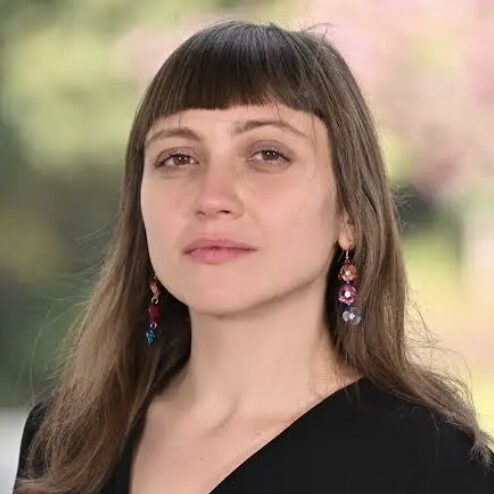
Bogna Konior
Bio: Bogna Konior is a scholar and a writer whose work focuses on emerging technologies.
She is currently Assistant Professor of Media Theory at NYU Shanghai, where she works at the Artificial Intelligence & Culture Research Center, and the Interactive Media Arts department.
She is the author of Dark Forest Theory of the Internet, forthcoming in the Theory Redux Series from Polity Press in 2025. With Benjamin Bratton and Anna Greenspan, she is the co-editor of Machine Decision is Not Final: China and the History and Future of Artificial Intelligence, forthcoming from Urbanomic in 2025, and distributed by MIT Press.
Fireside Chat topic: Machine Decision is Not Final: Contesting the Quiet Editor
Abstract: What we read today is increasingly shaped not by editors we can see, but by the “quiet editor”: system prompts, safety filters, and retrieval pipelines hidden within prompted interfaces. These determine who becomes visible, what tones are permissible, which contexts get erased. They replace verifiable sources with the appearance of credibility, footnotes with synthetic authority.
The quiet editor operates at scale and speed that exceeds human oversight, making thousands of editorial decisions per second about what counts as reasonable, credible, or even sayable. Yet these decisions appear to users as natural, neutral, even inevitable; machine verdicts handed down without appeal.
This conversation with Bogna Konior examines whether contestability is desirable or even possible under these conditions with specific focus on her Dark Forest Theory of the Internet. It will explore the implications of our infrastructure for public reason becoming proprietary and opaque, and what arises from AI systems that can generate unlimited, even contradictory evidence.
In a world where communication attracts danger, is editing violence or care?

Nick Montfort
Bio: Nick Montfort’s work includes ten computer-generated books (in print from seven presses), the collaborations The Deletionist and Sea and Spar Between, and more than fifty individual digital projects. His latest poetry book, All the Way for the Win, is composed entirely of three-letter words. His MIT Press books include The Future and two co-edited volumes, The New Media Reader and Output: An Anthology of Computer-Generated Text, 1953–2023. He’s a professor at MIT, principal investigator in the University of Bergen’s Center for Digital Narrative, and directs a lab/studio, The Trope Tank. He lives in New York City.
Speech topic: Coding, Clicking, and Prompting to Make Art
Abstract: Artists have made art with general-purpose, programmable computers almost from the moment of their invention, using many different methods. Writing computer programs (coding) was certainly the earliest way to coax art from computers. Initially, that coding was done using the instruction sets of particular processors. Before long, high-level languages allowed artists, and others, to write programs with greater ease, ones that were more legible to humans. Within two decades of the computer’s invention, innovators had developed special platforms and tools for the creation of art. In creative text generation, for instance, Joseph Weizenbaum is well-known for developing a computer character, DOCTOR, the first chatbot. However, his 1960s ELIZA was not just a way of making one character. It was a general-purpose platform for making different conversational systems. By that time, Max Matthews had developed MUSIC, a general synthesizer system, and Ivan Sutherland’s Sketchpad provided vector-drawing capabilities in the first-ever graphical user interface. Now, in addition to arcane types of programming (assembly and low-level coding), more approachable types of programming (in high-level languages), and tools for making art (from hypertext systems to applications for photo editing and 3D modeling), what seems to be a radically new way of engaging with the computer is erupting: Generative AI. Instead of writing to the specifics of a computer processor’s instruction set, or writing high-level object-oriented code, or developing artwork with clicks of a mouse in an app, we can write prompts and see what the system does.While I will have some to say about the specifics of this latest development, the main argument I’ll make is that new modes of computational artmaking do not obliterate previous ones. Some participants in today’s demoscene, a European community, craft their real-time animations with very low-level programming. Some artists write their own programs to transform images rather than using the abilities of Photoshop. While there are an abundance of creative platforms and tools available, those who program in performance (livecoders) very often write their own platforms — as if they were musicians inventing their own instruments. And livecoding almost always involves projecting and sharing the code as the musician and visualist develop and change it, so that transparency and even a sort of programming education becomes part of the performance. The question, then, is not what to do when prompt-writing takes over, but what the new ecology of computer art will be like as Generative AI takes its place among existing practices.
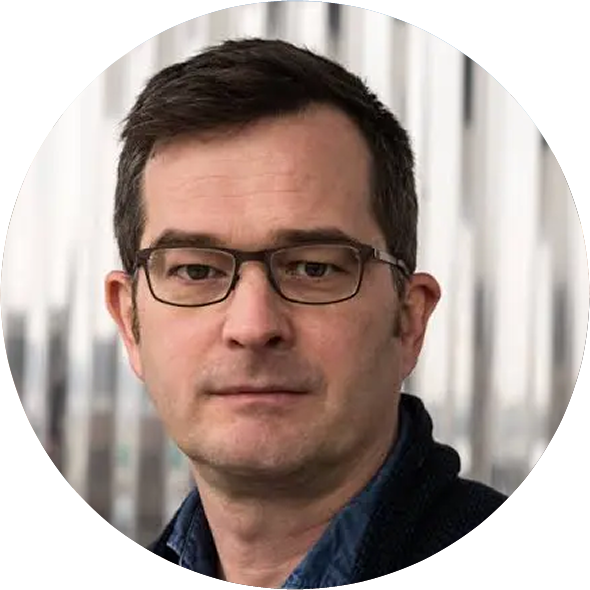
Felix Stalder
Bio: Felix Stalder is a professor the Zurich University of the Arts, teachingin the Department of Fine Arts “art:ifical studies” major. His workfocuses on the intersection of cultural, political and technologicaldynamics, in particular on new modes of commons-based production,copyright, datafication, AI, and transformation of subjectivity.
He not only works as an academic, but also as a cultural producer,as long-time moderator of <nettime>, a crucial nexus of critical netculture, first for the email list, now for its node in the fediverse. Heis a member of the World Information Institute and the TechnopoliticsWorking Group, both based in Vienna.He is the author/editor of numerous books, among others DigitalSolidarity (PML & Mute, 2014), Kultur der Digitalität / DigitalCondition /数字状况 (Suhrkamp, 2016/Polity Press, 2018, School of PublicArt, 2023), Aesthetics of the Commons (Diaphanes, 2021), DigitalUnconscious (Autonomedia, 2021), From Commons to NFTS (Ljubliana 2022)and “Contemporaneity in Embodied Data Practices” (Sternberg Press, 2025)
Speech topic: Digital culture, Generative AI, and Art.
Abstract: If we take culture to be the sum of all activities through whichsocieties organize meaning (to guide action), then generative AIintroduces a profound transformation of (digital) culture. Initially,digital culture was shaped by the interaction of three processes:referentiality (meaning as a relation between things), communality(meaning negotiated within groups), and algorithmicity (meaning throughautomated selection). LLMs and other types of generative AI, on theother hand, do not use any of that. They produce what looks likecultural output through correlations only, but across a large number ofvariables. There is no recourse to external references, logic, orsemantics. In this way,they cannot generate meaning to guide action butgenerate action to guide meaning. In linguistic terms, the function oflanguage shifts from “signification” to “action”. These models, toparaphrase Donald McKenzie, are not cameras, but engines.Picking up on this shift, some of the most interesting artistic uses ofgenerative AI explore it as a tool to create agency while leavingmeaning-making explicitly to humans.

Jack Stilgoe
Bio: Jack Stilgoe is a professor in science and technology studies at University College London, where he researches the governance of emerging technologies. He is part of the UKRI Responsible AI leadership team (www.rai.ac.uk). He was principal investigator of the ESRC Driverless Futures project (2019-2022). He is a regular media commentator and adviser to the UK government on AI, self-driving vehicles and other new technologies.
Speech topic: Bringing AI down to earth
Abstract: As the momentum behind artificial intelligence grows, the debate about its benefit and risks looks peculiar. Benefits are often presented as utopian; risks as existential. We need to resist AI exceptionalism, think about AI as a ’normal technology’ (Narayanan and Kapoor 2025) and remember the lessons of previous emerging technologies. In this talk, I will present new results from surveys of members of the public and AI researchers to argue that there is an opportunity for a more constructive debate.

James Steinhoff
Bio: Dr. James Steinhoff is an assistant professor in the School of Information and Communication Studies at University College Dublin. His research concerns the political economy of AI, data and digital media. He is author of Automation and Autonomy: Labour, Capital and Machines in the Artificial Intelligence Industry (Palgrave 2021) and co-author of Inhuman Power: Artificial Intelligence and the Future of Capitalism (Pluto 2019).
Speech topic: Prompting and the political economy of (non)determinism
Abstract: This talk suggests that we can think of the political economy of prompting as a struggle over determinism and contingency. In general, capital as a system seeks to eliminate contingency from its operations in order to facilitate valorization, even as it simultaneously generates new kinds of contingency via competition between individual capitals. Prompting is a probabilistic algorithmic technique, yet the AI which it serves as interface to is the centerpiece of capitalist techno-enthusiasm. I consider why prompting is probabilistic and evaluate the possible ramifications of a recent attempt to “defeat” contingency in LLMs. The elimination of such non-determinism seems possible, but it has costs which introduce a new dimension of calculation into the political economy of AI.
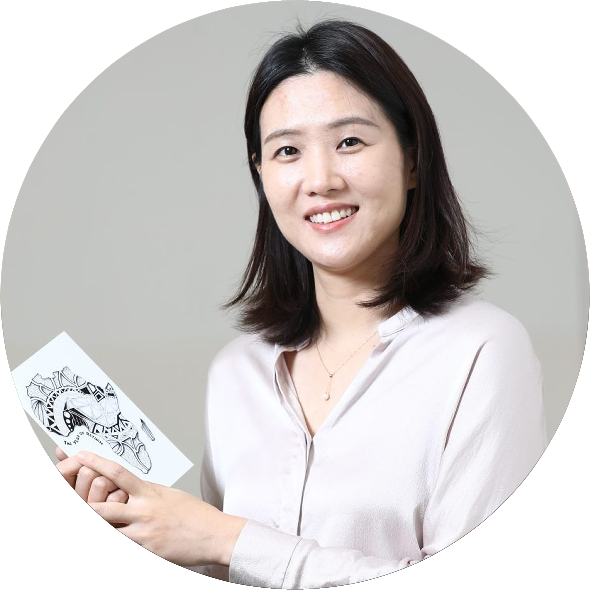
LU Miao
Bio: Miao Lu is an Assistant Professor in the Department of Cultural Studies, Lingnan University, Hong Kong. Her research interests include infrastructure studies, science and technology studies, and China-Africa studies. Her monograph “The Transsion Approach: Translating Chinese Mobile Technology in Africa” will be published by the University of Illinois Press (Geopolitics of Information Series) in Fall 2025. Her works have appeared in Information, Communication & Society, New Media & Society, and Science, Technology & Human Values.
Speech topic: Data center for the tropics: Heat management, Chinese tech, and energy politics in West Africa
Abstract: The craze for AI and cloud computing has fueled a data center building boom across the world. Departing from the temperate normality in selecting data center sites, China’s expansion into the tropics suggests both the geography and materiality of cloud infrastructure are in flux. While Chinese tech giant Huawei has risen into a significant data center provider in Africa, it faces new challenges of heat management in the tropical climate. In Ghana, the Huawei-built National Data Center recently introduced solar technology with the aim of reducing energy cost and carbon footprint.
Drawing from interviews and ethnographic research from 2023 to 2025, this paper elucidates the thermopolitics of cloud infrastructure in Ghana. Using “tropical materiality” as a theoretical framework, this paper investigates how a variety of state and corporate actors navigate and negotiate the tropical materialities of data centers relating to heat and energy. Empirically, this paper sheds new light on the paradoxes of green energy and the shifting cloud geography. Theoretically, this study contributes to infrastructure studies, global China studies, and science and technology studies by asking what we can learn from the tropics to understand the intricate entanglements between state, nature, and infrastructure.
CREATIVE TALK SPEAKER
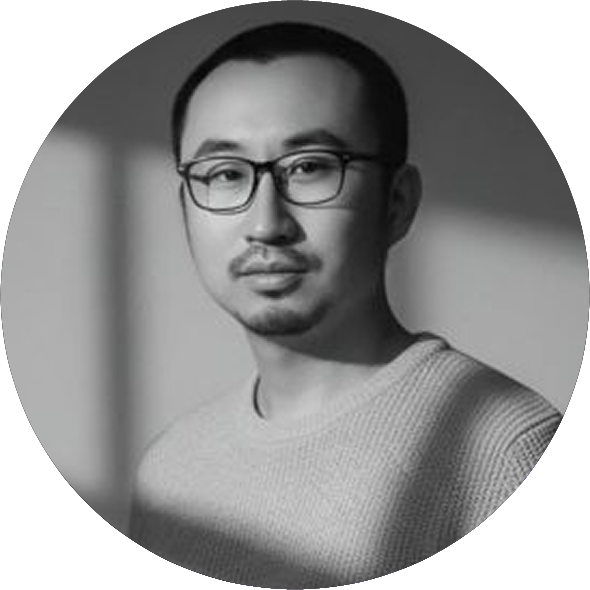
LUO Xiao
Bio: Luo Xiao is an algorithm engineer and digital artist, as well as the founder of Experimental Coding. He specializes in interactive media, artificial intelligence, and generative art through both creation and education. Currently, he serves as a Practicum Mentor at the AI and Art Creation & Research Center of Tongji University’s College of Architecture and Urban Planning, and holds the position of Executive Director at the AI Art Innovation Alliance (AIAIA).
Luo Xiao graduated from Beihang University with a background in Electronic Information Engineering and Software Engineering. He previously worked at Tencent ISUX and NetEase Games. Since 2005, he has been engaged in game development and new media art projects, and in 2020 began integrating AI technologies to reshape creative paradigms. His personal works have been exhibited in China, the UK, Japan, South Africa, Italy, and other countries.
Speech topic: When Generation Becomes Routine: Flux, Protocol, and Oblivion in the AI Era
Abstract: As generative practices enter daily life, how can digital artworks avoid being reduced to replicable combinations of prompts? From a practitioner’s perspective, this lecture shifts the focus from the “rule-based” approach of classical generative art to the “flux-oriented” dynamics of the generative AI era. It systematically introduces three methodologies: maintaining structure to preserve form and semantics, applying causal constraints to define feasible ranges, and shaping temporality to craft rhythm and texture. Through reproducible generative workflows, the talk explores how creators in the age of AI can retain authorship, trace origins, and document processes throughout creation and exhibition.
Conference General Chair: Huang Sunquan
Executive Planner: Wang Jingjie
Conference Affairs Team: Zheng Yeying, Wang Anqi, Zeng Mengrui
Working Group: Zhou Peng’an, Ding Le, Zeng Mengrui, Jing Jujin, Tian Peisong, Wang Anqi, Li Mengshu
Live Broadcast & Video: Jing Jujin, Li Yiyang, Zhao Jiajing, Li Chengjin, Li Yixin
Visual Design: Li Mengshu, Ding Le, Zheng Yeying
Sound: Boyang Guan
Motion Graphics: Shir-Shiko
